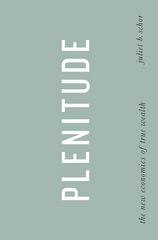Question
Fiscal and Monetary Policy Choose two of the following facts you might learn about the economy and explain in a sentence or two how it
Fiscal and Monetary Policy Choose two of the following facts you might learn about the economy and explain in a sentence or two how it might make fiscal and/or monetary policy more or less effective.
An increasing share of household consumption is paid for by borrowing.
Businesses considering new investment are very worried about whether there is enough demand for them to sell additional output.
Investors believe interest rates are as low today are as low as they can possibly get.
1. Putting The Pieces Together: Monetary Policy and Supply Shocks Recall two tools we used when discussing the production of real goods and services, Okun's law: (a) U = -a(g - b) and our accounting identity linking employment, output, and productivity growth: (b) %employment = %output - %productivity Also recall what the parameters (a and b) in Okun's Law are meant to reflect. A major focus of macroeconomic policy debates about the 1990's was the period's unusually strong growth in labor productivity. (It might be helpful to go on FRED and look up unemployment rates and inflation rates over this decade!) Describe how conventional monetary policy would respond to this unexpected rise in productivity. That is, what are first the effects of rising labor productivity, what actions would the central bank take in response, and what would the effects of those actions be? Then, based on your answer, how effective do you think monetary policy is expected to be in short-run terms versus long-run terms?
Step by Step Solution
There are 3 Steps involved in it
Step: 1

Get Instant Access to Expert-Tailored Solutions
See step-by-step solutions with expert insights and AI powered tools for academic success
Step: 2

Step: 3

Ace Your Homework with AI
Get the answers you need in no time with our AI-driven, step-by-step assistance
Get Started


